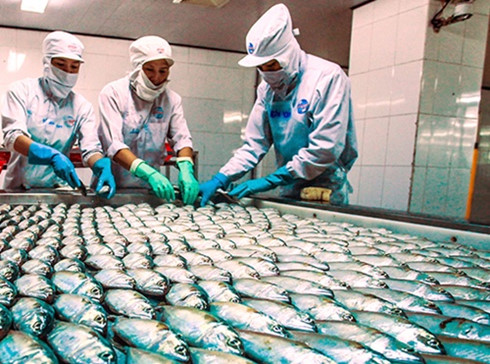Surrogate country and surrogate value promote Vietnamese exports to US
- The Central Group supports Vietnam in exporting
- In Africa, Vietnam's rice exporters see a rising market
- Clothing exports stall as TPP prospects sour
- VN exporters seek help after Hanjin bankruptcy
The high quality Vietnamese goods exported to US market have benefitted the Vietnamese producers as well as US consumers.
In the meantime, a litany of US Anti-dumping (“AD”) cases were filed in order to stymie the Vietnamese exports of goods. In such difficult times, surrogate value experts have played an important role in promoting Vietnamese exports to the USA.
 |
In AD Investigations, the Vietnamese goods are alleged to be exported to the US market at less than their fair market value. Since the US Department of Commerce (“DOC”) treats Vietnam as a non-market economy (“NME”) country, it rejects all the cost and price data reported from Vietnam and determines the fair market value by constructing the cost of goods in a third country, called surrogate country.
As such, the choice of a surrogate country and surrogate value data holds the key to the outcome in the Vietnamese AD proceedings.
To illustrate, in the US AD case on pangasius frozen fish fillets from Vietnam, up until the fifth administrative review of the AD Order, Bangladesh was consistently selected as the surrogate country.
The fair value based on the Bangladeshi surrogate values yielded reasonable AD margins, which was not to the liking of the Petitioners, Catfish Farmers of America (“CFA”).
Therefore, in the sixth administrative review, CFA argued that DOC reject Bangladesh as the surrogate country. In the preliminary results, DOC preferred the Philippines as the surrogate country, citing its superior fish price data. This switch resulted in very high preliminary AD margin.
At this point, VASEP’s surrogate value expert from GDLSK LLP has diligently worked in Bangladesh and discovered a new price data source published by the Bangladeshi Department of Agricultural Marketing (“DAM”) to value whole live pangasius fish. He also persuaded DAM to officially release its price data along with several clarificatory letters. All of these information were then submitted before DOC.
In the Final results issued in March 2011, in a remarkable turnaround, the DOC switched its surrogate country choice back to Bangladesh, citing the robustness of the DAM data for whole fish. As a result, the AD margins in the sixth review swung back to near zero level and the moribund Vietnamese exports to US was reinvigorated.
In the preliminary results of the subsequent seventh administrative review, DOC selected Indonesia as the surrogate country. This time, VASEP’s surrogate value expert undertook extensive field trips in Bangladesh and Indonesia. In Bangladesh, he persuaded the government to publish the DAM data online. In Indonesia, he had the then Director General of Indonesian Aquaculture Statistics (“IAS”), Mr. Ketuk Sugama, issue a detailed affidavit, clarifying the IAS data for whole fish.
In an encore, in the Final results issued in March, 2012, the Department switched back to Bangladesh. Commerce was persuaded to make this improbable switch solely on account of new and invaluable information obtained by the surrogate value expert from Bangladesh and Indonesia.
Notably, Commerce’s final results in the sixth and seventh administrative reviews have also been affirmed by the Court of International Trade (“CIT”).
In recent AD proceedings, DOC has preferred Indonesia over Bangladesh, notwithstanding that Indonesia was not even economically comparable to Vietnam. These decisions are pending in litigation. For future AD proceedings, VASEP’s surrogate value expert is engaged in a global research to identify the most suitable surrogate country.
Let’s hope that with excellent work of surrogate value experts, the future would be brighter for Vietnamese exports to the US.

